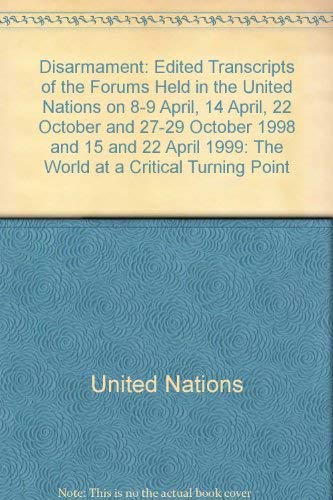Lack Of Funds: A Guide To Financial Freedom And Stability

Table of Contents
Understanding Your Current Financial Situation
Before you can achieve financial freedom, you need a clear understanding of your current financial standing. This involves a thorough assessment of your income, expenses, assets, and liabilities. Accurate financial assessment is the cornerstone of effective money management.
- Assess your income and expenses: Start by tracking your spending habits for at least a month. Use budgeting apps like Mint or YNAB (You Need A Budget), or a simple spreadsheet. Analyze where your money is going – categorizing expenses (housing, transportation, food, entertainment, etc.) will highlight areas where you can cut back. Identify non-essential spending that could be reduced.
- Calculate your net worth: Your net worth is the difference between your assets (what you own – savings accounts, investments, property, etc.) and your liabilities (what you owe – debts, loans, credit card balances). Calculating your net worth provides a snapshot of your overall financial health. A positive net worth signifies progress towards financial freedom, while a negative net worth indicates a need for debt management strategies.
- Analyze your debt: List all your debts (credit cards, loans, mortgages), including the interest rates and minimum payments. Understanding your debt obligations is crucial for developing an effective debt repayment plan. This debt analysis will inform your budgeting and saving goals.
Creating a Realistic Budget and Sticking to It
A budget is your roadmap to financial stability. It’s not about restriction, but about conscious spending to achieve your financial goals. Several methods can help you create and maintain a realistic budget.
- The 50/30/20 rule: This popular budgeting method suggests allocating 50% of your after-tax income to needs (housing, utilities, groceries), 30% to wants (entertainment, dining out), and 20% to savings and debt repayment. Adjust these percentages based on your individual circumstances and priorities.
- Zero-based budgeting: This method involves allocating every dollar of your income to a specific expense category, ensuring that all income is accounted for. It leaves no room for overspending and promotes mindful spending habits.
- Automate savings: Set up automatic transfers from your checking account to your savings account each month. This ensures consistent saving without requiring constant manual effort. Even small, automated savings contribute significantly over time.
Strategies for Increasing Income
While budgeting and saving are crucial, increasing your income significantly accelerates your journey to financial freedom. Explore various options to boost your earnings.
- Explore additional income streams: Consider freelancing, part-time jobs, or side hustles that align with your skills and interests. Renting out a spare room or unused assets can also generate extra income.
- Negotiate a raise: Research industry standards for your role and experience level. Prepare a compelling case outlining your accomplishments and contributions to justify a salary increase.
- Develop new skills: Invest in your professional development to increase your earning potential. Online courses, certifications, and workshops can equip you with in-demand skills and open up new career opportunities.
Effective Debt Management Strategies
High-interest debt can significantly hinder your financial progress. Implementing effective debt management strategies is essential for achieving financial stability.
- Prioritize high-interest debts: Focus on paying down debts with the highest interest rates first, such as credit card debt. This minimizes the total interest paid over time. The debt snowball or debt avalanche methods are effective strategies here.
- Debt consolidation: Consider consolidating multiple debts into a single loan with a lower interest rate. This simplifies payments and can potentially reduce your overall interest burden.
- Negotiate with creditors: Contact your creditors to explore options for lowering monthly payments or interest rates. Many are willing to work with borrowers facing financial hardship.
- Seek professional help: If you're struggling to manage your debt, consider seeking guidance from a credit counselor or financial advisor.
Building a Solid Financial Foundation for the Future
Once you've established a budget, managed your debt, and increased your income, it’s time to build a strong financial foundation for the future.
- Emergency fund: Aim to save 3-6 months' worth of living expenses in an easily accessible savings account. This safety net protects you from unexpected financial setbacks, preventing you from going into debt.
- Investing for long-term growth: Explore various investment options such as stocks, bonds, and mutual funds. Your investment strategy should align with your risk tolerance and financial goals. Start small and gradually increase your investments over time.
- Retirement planning: Begin saving for retirement early, even if it's a small amount. The power of compounding returns over time will significantly enhance your retirement savings.
Achieving Financial Freedom Through Effective Money Management
Achieving financial freedom requires consistent effort, planning, and the implementation of effective money management strategies. By understanding your financial situation, creating a realistic budget, increasing your income, managing debt effectively, and building a strong financial foundation, you can overcome a lack of funds and build a secure financial future. Remember, financial freedom is a journey, not a destination. Start your journey towards financial freedom today! Take control of your finances and overcome your lack of funds by implementing these practical strategies. Use budgeting apps, explore investment options, and don't hesitate to seek professional financial advice when needed.

Featured Posts
-
 Wyoming Otter Management A Critical Turning Point
May 22, 2025
Wyoming Otter Management A Critical Turning Point
May 22, 2025 -
 Discover Unusual Eats At The Manhattan Forgotten Foods Festival
May 22, 2025
Discover Unusual Eats At The Manhattan Forgotten Foods Festival
May 22, 2025 -
 Honest Review New Playwrights Watercolor Inspired Script
May 22, 2025
Honest Review New Playwrights Watercolor Inspired Script
May 22, 2025 -
 Pm Strengthens Embassy Security Following Blood Libel Threats
May 22, 2025
Pm Strengthens Embassy Security Following Blood Libel Threats
May 22, 2025 -
 Toledo Gas Prices See Weekly Decline
May 22, 2025
Toledo Gas Prices See Weekly Decline
May 22, 2025
